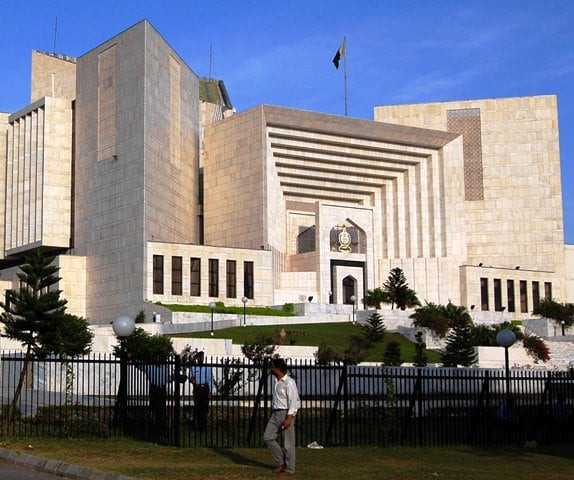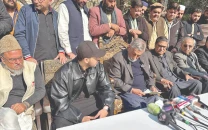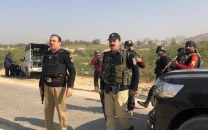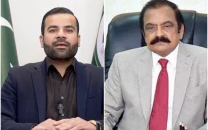Memogate: Court admits persistent Haqqani’s appeal
CJP Chaudhry says former ambassador's plea should be heard.

Chief Justice Iftikhar Muhammad Chaudhry ordered the office ‘to entertain the application,’ after overruling the objections the Registrar Office had raised earlier, according to the advocate-on-record, Chaudhry Akhter Ali.
The registrar, Fakir Hussain, on Friday asked Haqqani’s counsel, Asma Jahangir, to file a review petition against the Supreme Court’s order of December 1, instead of an application.
Jehangir subsequently challenged the objections in an appeal, which the chief justice heard in his chamber.
“I had informed the Supreme Court that an application, rather than a review petition, was permissible against an interim order,” said Akhter, who argued the application in Jehangir’s absence.
The application would now be placed for hearing along with the main Memogate case before a nine-member bench of the Supreme Court on December 19. The chief justice heads the bench.
Haqqani’s objections
The application said the Supreme Court had passed an ‘illegal order,’ for it did not hear Haqqani’s side of the story. The court regrettably identified the offence of high treason under Article 6 of the constitution without hearing Haqqani, it said.
“At its worst, if at all, the matter would fall within the jurisdiction of the High Treason (Punishment) Act, 1973 or the Prevention of Anti-National Activities, 1974,” the application stated.
Referring to the media’s coverage on the issue, the application stated that the court’s order appeared to have been highly influenced by the media, which has “often been used for ulterior motives”.
“The court has failed to acknowledge that the unsigned memo ran contrary to the policy of the government of Pakistan and its contents were patently absurd,” the appeal stated.
“The court cannot assume the role of supervising an investigation of a criminal nature at the apex level. Continued control over the investigation exercised by the court is prejudicial to the accused and detrimental to the fairness of the procedure, apart from being without jurisdiction,” it read.
Last day to reply
When the court takes up the matter on December 19, it would have to decide what to do with its order on the probe since its nominee, former FIA DG Tariq Khosa, refused to head the court’s commission.
Published in The Express Tribune, December 15th, 2011.



















COMMENTS
Comments are moderated and generally will be posted if they are on-topic and not abusive.
For more information, please see our Comments FAQ